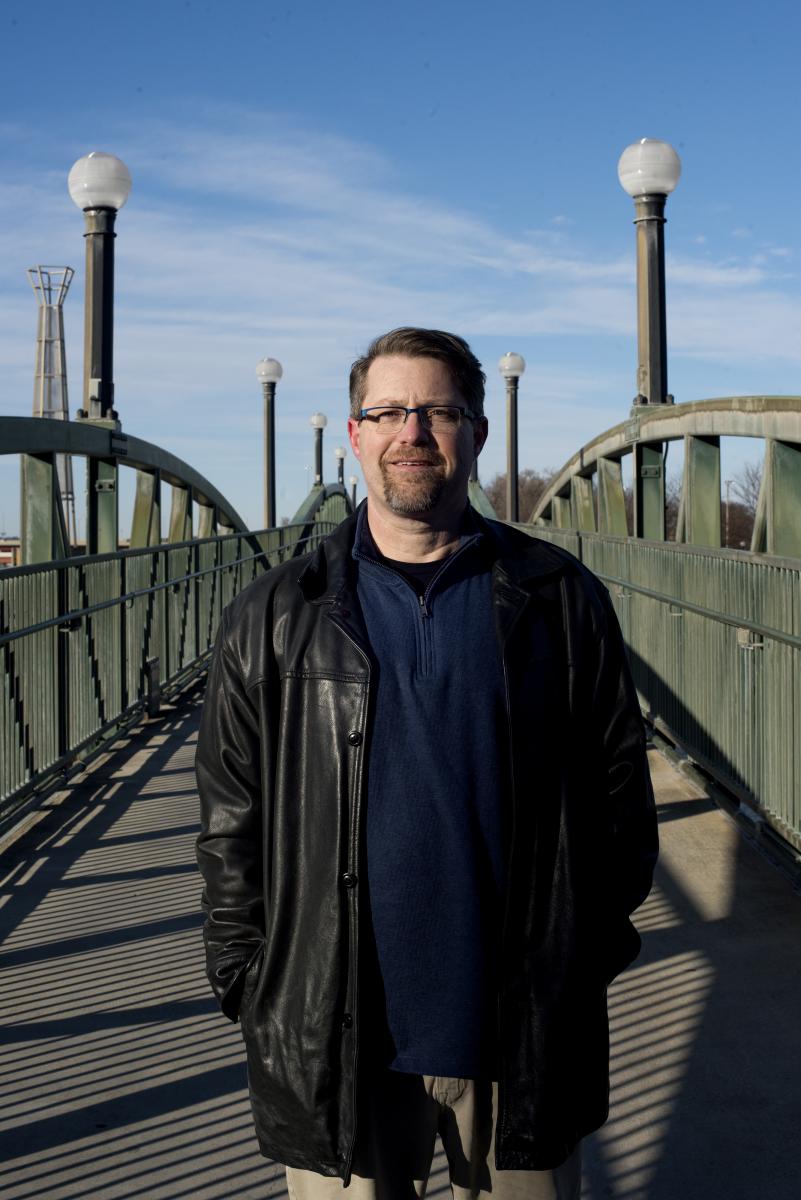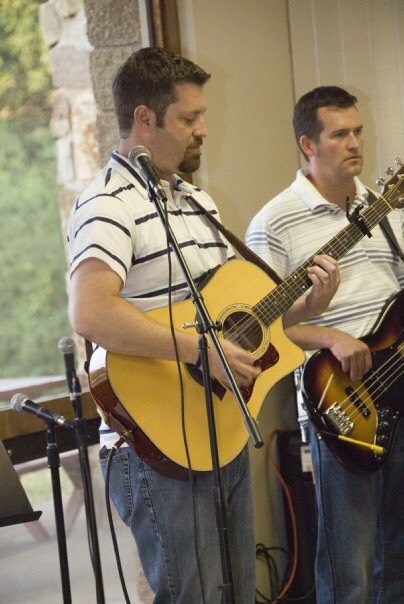
January/February 2018 Visitor Feature: Choosing Hope
 Story by V. Michelle Bernard / Cover images by Ty Wright/AP Images
Story by V. Michelle Bernard / Cover images by Ty Wright/AP Images
Elliot Smith remembers his academy teacher pulling him aside after class one day. The teacher noticed he wasn’t enjoying singing anymore—something he loved doing since elementary school. “I didn’t have fun with it, didn’t have the peace I had before,” says Smith, a member and former young adult pastor of Ohio Conference’s Kettering church in Dayton. His blue feelings also changed his life academically. “If I would encounter a difficulty, it would seem hopeless,” he says. “It wasn’t that I was trying
to do something and getting bad grades; I just stopped ‘doing.’”
In college Smith says he felt the “darkness” again. This time his advisor pulled him aside and was the first person to use the term “depression” with him. “I did what a lot of people do—I didn’t want to talk about it,” shared Smith in a recent sermon at Ohio Conference’s Miamisburg church. “As guys, let’s be honest, we don’t like talking about our problems, especially emotional problems.”
Smith started sharing his struggles with his advisor and says that she opened his eyes to the reality of his disease. He realized it wasn’t something you could just “pray away.”
He continued learning and understanding more about depression when that same advisor challenged him to pursue a career in social work. He later started working in a psychiatric hospital. He says seeing the medical side of people with severe mental illnesses and depression “woke me up to the reality that it isn’t just spiritual and mental, [but also physical].”
 In the Storm
In the Storm
Smith, now a licensed social worker and a chaplain at Kettering Adventist HealthCare (KAHC) in Dayton, says depression can be caused by genetic and/or environmental factors. Children learn how to feel, eat and make lifestyle choices from their families—factors that can all have an impact, he adds.
“Sometimes people get trapped thinking so much about the ‘why,’ [that] they don’t think about what to do now. ... I was stuck on the ‘why’ for almost a decade, being content to batter that question around,” he says.
During this phase, a friend asked him what he thought about most during the day. Smith realized he was focusing on how dark and hopeless things were. His first step of healing was to “get outside himself” and focus on someone else. “Not to look to them for strength or to make me feel better, but to take my mind off myself,” he says, and adds that those suffering from depression must intellectually choose to have hope.
“It is very difficult to choose hope in dark times, but part of the healing process is to start looking for those little glimmers of hope that we can find in our lives or in this world,” he says.
In addition to seeking counseling and medication, Smith also says that realizing God was present in the good and bad times helped him recover. “I remember it changed my life when I realized that God is just as present in the dark times as the bright times. ... God is with us in the storm.”
Church as a Hospital
Smith is not alone in the struggle with depression. The National Alliance on Mental Illness reports that 6.9 percent of adults in the U.S. have had a major depressive episode in the past year. This figure doesn’t include anxiety, bipolar disorder and other common mental health issues. According to the World Health Organization, depression affects 300 million people worldwide. It can affect a person’s ability to work, form relationships and destroy their quality of life. At its worst, depression can lead to suicide and is responsible for close to 800,000 deaths every year.
To their detriment, many people fail to seek help for various reasons. In Smith’s case, faith played a factor. “Sometimes we spiritualize our problems,” he says. “I thought that I was being a weak Christian if I couldn’t pray my way through it.”
He notes another challenge is that some members feel they can’t “be real” about their problems. A common complaint he hears from young adults is that Adventist members need to talk about issues like depression more. He hopes that churches can turn into places where people can open up and talk about what life is really like.
Marissa Leslie, M.D., and medical director of Adventist HealthCare’s Behavioral Health division in Gaithersburg, Md., says there needs to be an organizational culture shift in church. “There needs to be an environment where people feel safe enough to share their intimate struggles. The church itself should adopt an attitude that embraces mental health issues as any other issue. We have no issues asking for prayer for cancer, but for some reason we have great difficulty asking for prayer for depression.”
Smith would especially like to see more intentional Christian development with members, just like he received from his teachers years ago. Mentoring is especially important for guys, he says. “We need to come alongside each other and share how we live life. Hopefully that normalizes things and gives people a sense of hope.”
Rediscovering Joy
 More than 20 years into this journey, Smith says he no longer struggles with depression, but continues to attend counseling, journal and talk about his feelings, rather than stuffing or brooding over them. “It is incredibly therapeutic to go back and read those journals over the last 20 years and see evidence of God working in my life that I didn’t see at the time,” he says.
More than 20 years into this journey, Smith says he no longer struggles with depression, but continues to attend counseling, journal and talk about his feelings, rather than stuffing or brooding over them. “It is incredibly therapeutic to go back and read those journals over the last 20 years and see evidence of God working in my life that I didn’t see at the time,” he says.
He has also rediscovered the joy in music. Today he is one of Kettering church’s worship leaders, and teaches individual guitar and ukulele lessons, using his experience to help others. “It is something we all deal with,” he says. “Talking about it and labeling it helps us understand and move forward.”
If he could go back and counsel his younger self, he’d say, “Look what life can be. ...The reality is, you aren’t going to be completely happy and carefree, [but] you’ll be able to enjoy singing.”
He adds, “It is a miracle in some ways to see where God brought me. It is pretty humbling.”
 Read and Share These Articles!
Read and Share These Articles!

Comments
Article on Depression
Not sure what your title means
"VISITOR magazine
Connecting Columbia Union Seventh-day Adventists"
"VISITOR magazine" is quite clear but this short story is very excellent, and I hope it is shared with more then any visitors to your church.
I am a 4th generation SDA, born to SDA missionary parents living in Alaska. Growing up in the 60's - 80's in Alaska, Oregon and Washington states, most people at church didn't seem to understand depression at all; I grew up suffering severe childhood depression ESP in my late childhood and my entire teenage years. Parental influence was strong and I believed that to be depressed was because I had let the devil into my life somehow, and to deal with it was pray and ignore my sufferings. It wasn't until I was 18 when the family doctor took me aside and gave me my FIRST GLIMPSE of what depression was (and I STILL didn't even believe I had it! Though I KNEW I was suffering SOMETHING. And even then [at age 18] I refused help just to please my beloved grandmother and my mother. It wasn't until I was in my early 30's when I had four little kids all under age 6 that I was willing to take a real an objective look at the problem. And it literally took a miracle to have been in a place and time with a good Christian Counselor who guided me through some of the worst years of my life (which is another MIRACLE story it's self).
It is with a DEEP GRATITUDE today that I am where I am now with a healthy understanding of my mental, physical, spiritual, AND emotional being.
Thank you!
Missed your message until now (the notification didn't get sent.) Thank you so much! Hope others fill seek healing because of this article:). -VMB
Elliott Smith
Thanks for your message
Add new comment